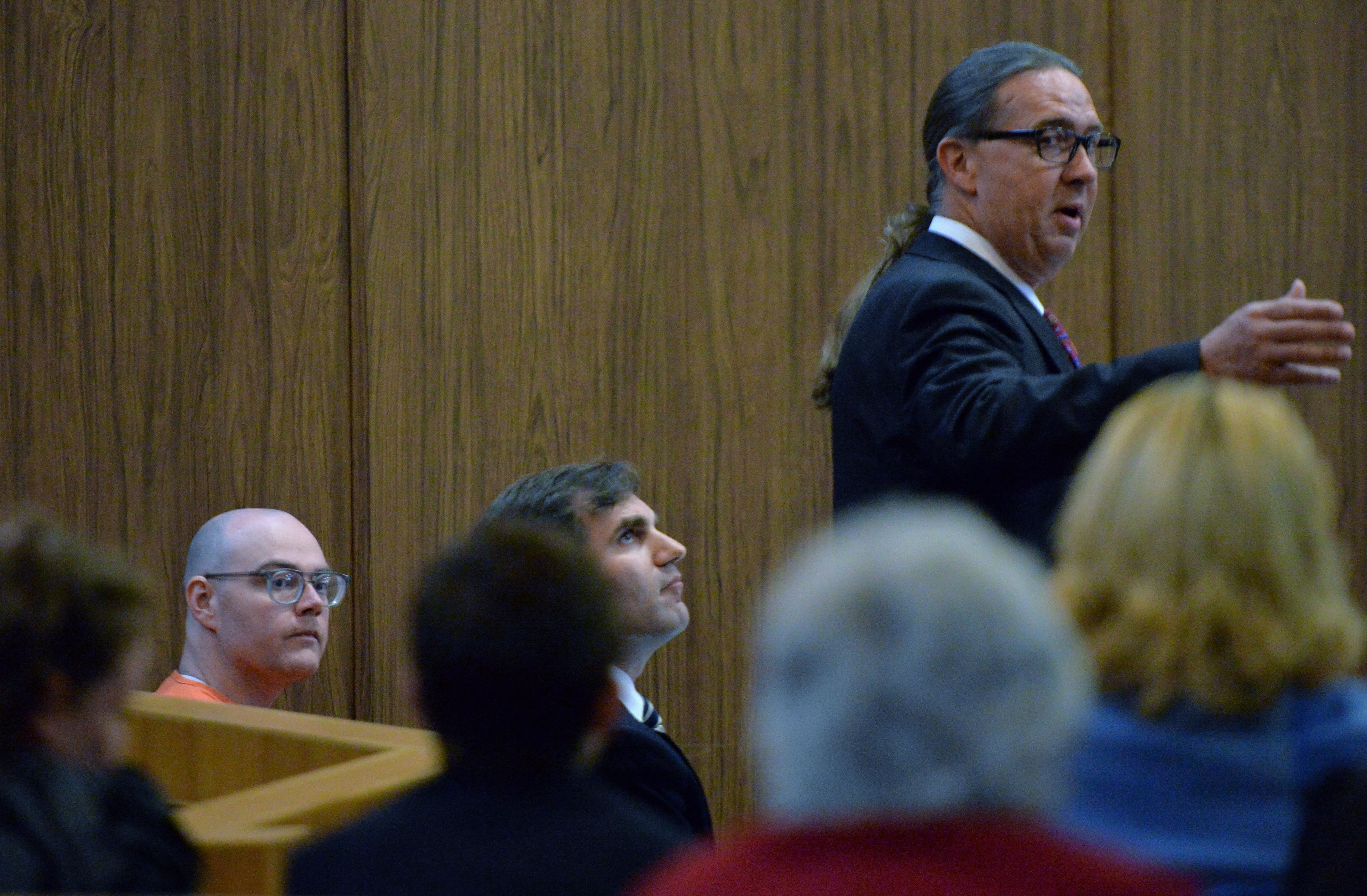Justin Chapman's murder, arson case to get new look
A special prosecutor will soon be appointed to take a new look at the murder and arson case against Justin Chapman.
Chapman's case was the subject of "Breakdown," a seven-part podcast series that was aired this spring by The Atlanta Journal-Constitution. The series showed how the justice system broke down again and again and again in Chapman's case before, during and after his trial in 2007.

A Haralson County jury found Chapman guilty of setting his own duplex on fire to get back at his landlord who had told Chapman and his family to find a new place to live. The June 20, 2006, fire spread quickly to the apartment next door and killed his 79-year-old neighbor, Alice Jackson.
But earlier this year the Georgia Supreme Court upheld a judge's ruling that threw out the convictions and ordered a new trial on grounds Chapman's prosecutor failed to turn over important evidence to his public defender, Jan Hankins.
In June, Chapman's new legal team began filing a series of court motions seeking to disqualify Haralson County's current district attorney, Jack Browning, from handling the case because of conflicts of interest.
This week, Browning voluntarily withdrew from the case and asked Attorney General Sam Olens to appoint a special prosecutor who will now decide whether Chapman should be tried for murder and arson once again. A spokesman for Olens said the appointment will be made soon.
"My job is not just to seek justice against someone who may have done something wrong," Browning said Wednesday. "I have to make sure the accused gets a fair trial."
After reviewing the motions filed by Chapman's legal team and court records, Browning said he decided to "err on the side of caution" and let another prosecutor take the case.
"It was the honorable thing for him to have done and we respect it," said Frank Hogue, one of

Chapman's attorneys.
Browning could not stay on the case because he once represented some of the most important witnesses who testified against Chapman at the 2007 trial, court motions said. For example, when he served as a public defender, Browning represented Joe White, the jailhouse snitch who testified Chapman confessed to him that he started the fire.
Browning once represented Gary Allen Stroupe, who testified at trial he saw Chapman walking away from his house around the time the duplex went up in flames. Browning also represented at least four other key witnesses, including William Paul Chieves, the man who Chapman pistol-whipped just hours before the fire. A drunken Chieves had shown up at Chapman's duplex to exact revenge because Chapman had called Chieves' aunt a "red-headed crack whore."
When he represented these witnesses as a public defender, Browning had to maintain confidentiality in his dealings with them, Hogue said. This would have presented a real conflict if Browning had learned something from any of those former clients that would have shown Chapman may not have committed the crime or have been favorable information that needed to be turned over to the defense.
"If he had learned something while representing one of those witnesses that his current obligation as the district attorney would require him to reveal to the defense, he could not do it because of his obligation to his former clients," Hogue said.
Browning also had a personal stake in Chapman's case, the court motions said. When Browning decided to leave the public defender's office and run for district attorney, he criticized the incumbent district attorney for the way he handled Chapman's case and publicly expressed his belief during the campaign that Chapman was guilty, the motions said.
Chapman is now out on $75,000 bond and living with his mother. He has denied having anything to do with setting the fire or his neighbor's murder, and his new legal team has uncovered new evidence and testimony that was not heard by Chapman's jury that challenges many facets of the prosecution's case.

